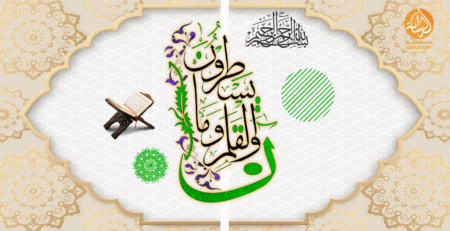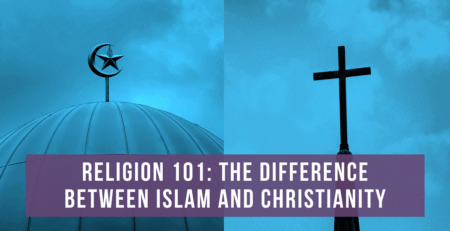Polygamy in Islam: Navigating Kindness in Polygamous Marriages
Introduction to Polygamy in Islam
Polygamy, the practice of having more than one spouse simultaneously, has been a subject of controversy and debate across different cultures and religions. In Islam, polygamy is permitted under certain conditions, with the primary requirement being fairness and kindness towards all wives. This article delves into the Islamic perspective on polygamy, the challenges faced by Muslim men in polygamous marriages, and the importance of kindness in maintaining harmonious relationships.
Islamic Perspective on Polygamy
Islamic teachings regarding polygamy are primarily derived from the Quran, the holy book of Islam, and the Sunnah (traditions) of Prophet Muhammad (peace be upon him). The Quran acknowledges polygamy as a permissible practice but places strict conditions on its implementation. Surah An-Nisa (4:3) states, “Marry those that please you of [other] women, two or three or four. But if you fear that you will not be just, then [marry only] one.”
Challenges Faced by Muslim Men in Polygamous Marriages
Despite the allowance of polygamy in Islam, many Muslim men find it challenging to fulfill the requirements of fairness and kindness towards their multiple wives. Cultural norms, societal pressures, and financial constraints often exacerbate the difficulties faced by polygamous families. Additionally, navigating emotional dynamics and ensuring equitable treatment pose significant challenges for men in polygamous marriages.
Importance of Kindness in Polygamous Marriages
Kindness forms the cornerstone of successful polygamous marriages in Islam. The Quran emphasizes the importance of treating wives with equity and compassion. Surah An-Nisa (4:19) instructs, “And live with them in kindness. For if you dislike them – perhaps you dislike a thing and Allah makes therein much good.”
Addressing Misconceptions about Polygamy
Polygamy in Islam is often misunderstood and misrepresented, leading to misconceptions and negative stereotypes. It is crucial to dispel myths and clarify the true teachings of Islam regarding polygamous marriages. When practiced in accordance with Islamic principles, polygamy can serve as a means of providing support and protection to women in need, such as widows or orphans.
Coping Strategies for Muslim Men in Polygamous Marriages
Effective communication, empathy, and patience are essential for navigating the complexities of polygamous relationships. Muslim men should strive to understand the needs and concerns of each wife and actively work towards fostering harmony and mutual respect within the family. Seeking guidance from knowledgeable religious scholars and community elders can also provide valuable support and guidance.
The Role of Women in Polygamous Marriages
Contrary to popular misconceptions, women in polygamous marriages possess agency and autonomy. Islam grants women the right to consent to marriage and stipulates that they should be treated with dignity and respect by their husbands. Mutual understanding, trust, and cooperation are vital for maintaining healthy relationships within polygamous families.
Social Stigma and Discrimination Against Polygamous Families
Polygamous families often face discrimination and social stigma due to prevailing misconceptions and biases. It is imperative to challenge stereotypes and promote acceptance and tolerance towards diverse family structures. Education and advocacy efforts can help combat discrimination and foster inclusivity within society.
Legal and Ethical Considerations
While polygamy is permissible in Islam, its legality and acceptance vary across different countries and legal systems. It is essential for individuals engaging in polygamous marriages to adhere to both legal requirements and ethical principles. Transparency, honesty, and accountability are crucial for upholding the rights and responsibilities of all parties involved.
Support Systems for Polygamous Families
Polygamous families can benefit from accessing support services and resources tailored to their unique needs. Counseling, therapy, and community support groups can provide emotional guidance and practical assistance in navigating the challenges of polygamous relationships. Building a strong support network is essential for promoting resilience and well-being within polygamous families.
Conclusion
In conclusion, polygamy in Islam is a complex and nuanced practice that requires adherence to Islamic teachings and principles of fairness and kindness. While Muslim men may face challenges in maintaining equitable relationships with multiple wives, prioritizing kindness and empathy can contribute to fostering harmonious polygamous marriages. By addressing misconceptions, advocating for acceptance, and seeking support when needed, polygamous families can navigate their unique dynamics with resilience and strength.
FAQs
- What does Islam say about polygamy? Islam permits polygamy under certain conditions, with the primary requirement being fairness and kindness towards all wives.
- Can a woman refuse her husband’s decision to take another wife? Yes, Islam grants women the right to consent to marriage, and they can refuse their husband’s decision to take another wife if they so choose.
- How common is polygamy among Muslims? Polygamy varies in prevalence among Muslim communities, with cultural and societal factors influencing its practice.
- Is polygamy legal in all countries with Muslim-majority populations? Polygamy’s legality varies across different countries and legal systems, with some countries permitting it under specific conditions while others prohibit it altogether.
- What are the benefits of polygamy in Islam? Polygamy can serve as a means of providing support and protection to women in need, such as widows or orphans, and can contribute to the growth and stability of the Muslim community.











Leave a Reply